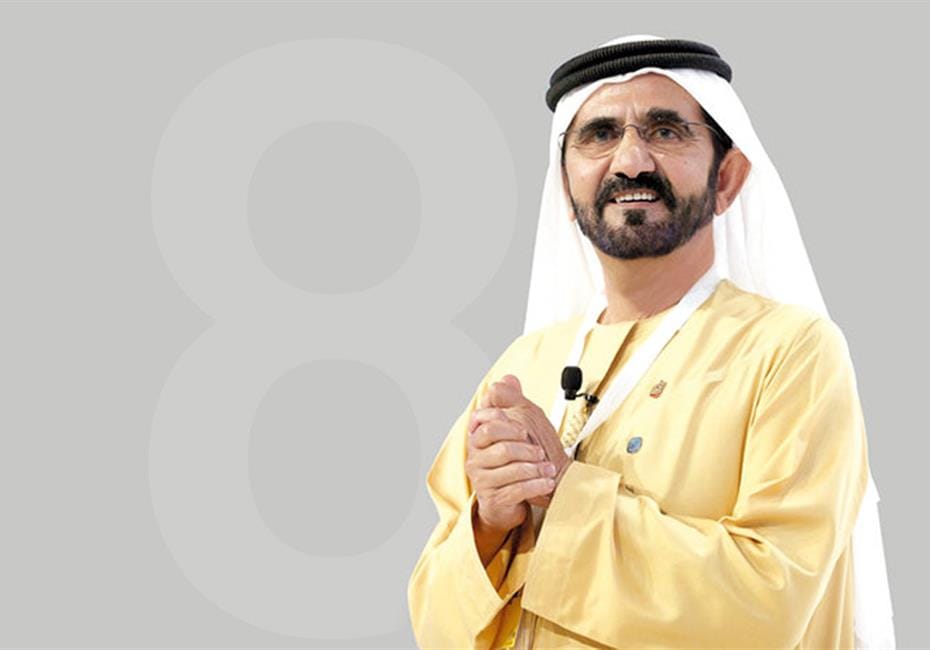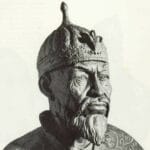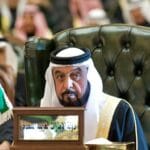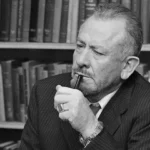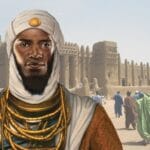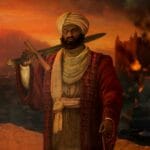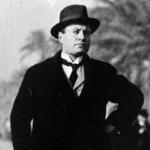Get ready to meet Mohammed bin Rashid Al Maktoum, the man who turned Dubai into the stunning city it is today. From his simple beginnings to his incredible leadership, we’ll dive into his life and discover the secrets and dramas that have made him a legend. Join us as we uncover the hidden truths behind this enigmatic ruler in “Unveiling the Enigma: Mohammed bin Rashid Al Maktoum.”
Enigmatic Facts About Mohammed bin Rashid Al Maktoum
Mohammed bin Rashid Al Maktoum, the ruler of Dubai, is a figure who inspires fascination and intrigue. While he is widely recognized for his leadership and vision in transforming Dubai into a global metropolis, there are many intriguing aspects of his life that often go unnoticed. Let’s delve into some lesser-known facts about this enigmatic leader.
- Dreams Took Flight: Before taking on the mantle of leadership, a young Sheikh Mohammed harbored a passion for the skies. He pursued his pilot training in the United Kingdom, hinting at an adventurous spirit and a global outlook that would later define his leadership.
- The Sheikh Who Writes: Sheikh Mohammed isn’t just a political figure; he’s also a man of letters. Writing under his own name, he has penned several books, showcasing a contemplative side and a desire to share his thoughts and experiences with the world. This suggests a leader who values introspection and communication beyond the realm of politics.
- Capturing Beauty Through the Lens: The vibrant tapestry of the UAE, from its awe-inspiring landscapes to the warmth of its people, holds a special place in Sheikh Mohammed’s heart. His passion for photography allows him to capture and share these precious moments, revealing an artistic sensibility and a deep appreciation for the beauty that surrounds him.
- A Legacy of Giving: Sheikh Mohammed’s influence extends far beyond his political role. He is renowned for his philanthropic endeavors, consistently supporting initiatives related to education, healthcare, and cultural preservation. This dedication to improving the lives of others paints a picture of a leader who genuinely cares about the well-being of people both within and beyond his nation’s borders.
- The Horse Whisperer of Dubai: Horses hold a special significance in Emirati culture, and Sheikh Mohammed’s love for equestrian sports is widely known. His passion, particularly for horse racing, has garnered international acclaim and played a key role in establishing Dubai as a prominent destination in the world of equestrianism.
- Gazing into the Future: Innovation is more than just a buzzword for Sheikh Mohammed; it’s a core principle that guides his vision for the future. He actively champions programs designed to foster technological advancement and the development of sustainable solutions. This forward-thinking approach highlights his commitment to securing a brighter future for generations to come.
- A World Stage Presence: Sheikh Mohammed possesses a deep understanding of international affairs, a quality that has significantly bolstered the UAE’s diplomatic standing on the world stage. He has been instrumental in fostering collaboration between nations and positioning the UAE as a vital player in global dialogues.
- Building Bridges Through Culture: Recognizing the power of cultural exchange, Sheikh Mohammed actively promotes understanding and appreciation between the East and the West. He believes in showcasing the UAE’s rich heritage and fostering dialogue between different cultures, emphasizing the importance of building bridges instead of walls.
- Empowering the Next Generation: Sheikh Mohammed firmly believes that young minds hold the key to the future. He has consistently invested in education and created numerous opportunities for youth development, recognizing that empowering the next generation is essential for progress and innovation.
- Family: The Cornerstone of Life: Despite his multifaceted public persona, Sheikh Mohammed remains deeply grounded in family values. His large extended family stands as a testament to his belief in the importance of strong family bonds and their role in shaping a fulfilling life.
These intriguing glimpses offer a more complete picture of Sheikh Mohammed bin Rashid Al Maktoum—a leader driven not only by ambition but also by a passion for knowledge, a love for his nation, and a deep commitment to making a positive impact on the world.
What is Sheikh Mohammed bin Rashid Al Maktoum Known For?
Sheikh Mohammed bin Rashid Al Maktoum, the influential ruler of Dubai, is renowned for his equestrian accomplishments, particularly his thoroughbred breeding empire, which includes the world-renowned Godolphin and Darley stables. His passion for horses extends beyond mere hobby; he’s a driving force in the global equestrian community.
As Prime Minister and Vice President of the United Arab Emirates since 2006, Sheikh Mohammed has played a key role in Dubai’s economic and tourism boom. He’s been a driving force behind its transformation into a global business and tourist destination, known for its ambitious infrastructure and real estate projects. His vision has shaped modern Dubai, making it a recognizable name worldwide.
Beyond politics and horses, Sheikh Mohammed is known for his large family. Married to six women, he reportedly has at least 30 children, including Crown Prince Hamdan bin Mohammed Al Maktoum. While large families aren’t uncommon in his culture, it’s this aspect of his personal life, particularly allegations concerning the well-being of his daughters, that has drawn scrutiny and sparked international debates.
The allegations against Sheikh Mohammed regarding his daughters’ welfare have significantly impacted his public image. These serious claims have led to international concern and high-profile legal battles, raising questions about his leadership and Dubai’s commitment to human rights.
Sheikh Mohammed’s story is a complex tapestry woven from impressive achievements, personal controversies, and undeniable influence. His impact extends far beyond the borders of Dubai, leaving a mark on everything from global equestrian sports to international diplomacy.
How is the Princess of Dubai?
The situation surrounding the princesses of Dubai, specifically Princess Shamsa and Princess Latifa, daughters of Sheikh Mohammed bin Rashid Al Maktoum, has captured global attention, raising serious concerns about their well-being and sparking discussions about human rights within the UAE.
Princess Shamsa bint Mohammed Al Maktoum has accused her father of holding her hostage in Dubai since a foiled escape attempt in 2018. She alleges being deprived of her liberty, including freedom of movement and access to necessary medical care.
Similarly, Princess Latifa, another daughter of the Dubai ruler, claims she was kidnapped and forcibly returned to the country after attempting to flee in 2018. She alleges being held in solitary confinement, denied access to medical care and legal representation. Her situation has garnered significant media attention, further fueling concerns about her safety and the treatment of women within the UAE.
These princesses’ attempts to escape and their subsequent alleged detentions have raised the alarm about potential human rights violations within Dubai’s ruling family. The United Nations and various international organizations are pressing for transparency and accountability from Dubai’s authorities. Human rights groups have condemned the alleged treatment of the princesses, demanding their release and a thorough investigation into the claims.
The situation remains shrouded in secrecy, with limited information available about the princesses’ current status and the validity of the allegations. The lack of transparency from Dubai’s government has only intensified global scrutiny and calls for a thorough and independent investigation.
The fate of these princesses hangs in the balance, with the world watching and waiting for answers. The hope remains that they will one day be free to share their stories and that justice will be served.
What Problem does the Mohammed bin Rashid Al Maktoum Solar Park Solve?
The Mohammed bin Rashid Al Maktoum Solar Park, the world’s largest single-site solar park, represents a monumental step towards a future powered by renewable energy. This ambitious project tackles several critical issues facing Dubai and the world today.
First and foremost, this solar park significantly contributes to Dubai’s clean energy transition and its ambitious goal of generating 75% of its energy from renewable sources by 2050. As the city continues to grow, so does its demand for power. This solar park provides a sustainable solution to meet this demand while reducing the reliance on traditional fossil fuels.
The environmental impact of the solar park cannot be overstated. By some estimates, it’s projected to reduce carbon emissions by millions of tons annually, playing a significant role in the UAE’s commitment to the Paris Agreement and its ambition to achieve net-zero emissions by 2050. This shift to cleaner energy sources is crucial in combating climate change and its global consequences.
The project also promotes economic diversification, lessening Dubai’s dependence on its finite oil and gas reserves. By investing heavily in renewable energy, Dubai positions itself as a leader in this burgeoning sector, attracting foreign investment and creating new job opportunities.
The Mohammed bin Rashid Al Maktoum Solar Park is not just a feat of engineering; it’s a powerful symbol of Dubai’s commitment to a sustainable future. It stands as an inspiring model for other nations looking to embrace clean energy and reduce their environmental impact.
What is the History of Al Maktoum?
The Al Maktoum family’s history is deeply intertwined with the narrative of Dubai itself. Descendants of the Bani Yas tribe, a powerful group with roots in the Al Bu Falasah clan, they’ve held the reins of power in Dubai since 1833, their leadership spanning almost two centuries.
The Al Maktoum dynasty’s story began when Sheikh Maktoum bin Butti, a leader within the Bani Yas, spearheaded a strategic move to Dubai, then a humble fishing village. Joined by Obeid bin Said and 800 members of their tribe, they took control of the town, marking the beginning of their enduring reign. After Obeid bin Said’s death in 1836, Maktoum bin Butti became the sole ruler, solidifying the Al Maktoum family’s grip on power.
Since that pivotal moment, the Al Maktoums haven’t relinquished their control of Dubai. Sheikh Mohammed bin Rashid Al Maktoum, the current ruler, ascended to power in 2006, continuing the legacy of his forefathers. This continuous lineage speaks volumes about their ability to navigate the ever-changing political landscape and maintain stability within the emirate.
The Al Maktoums’ rule has witnessed Dubai’s dramatic transformation from a modest trading post into the global powerhouse it is today. Their strategic decisions, ambitious projects, and unwavering dedication have been instrumental in shaping Dubai’s identity as a global hub for business, tourism, and innovation.
The Al Maktoum family’s story isn’t just about inheritance; it’s about ambition, vision, and a commitment to progress. They haven’t rested on the laurels of their heritage; they’ve actively shaped Dubai’s destiny, leaving an indelible mark on the global stage. Their story serves as a reminder that true leadership involves not only maintaining power but also using it to create a brighter future.
Who Controls Dubai?
While Dubai is known for its towering skyscrapers and luxurious lifestyle, many wonder who holds the true power in this glittering emirate. The simple answer is Sheikh Mohammed bin Rashid Al Maktoum. He isn’t just a figurehead; he’s the driving force behind Dubai’s rapid transformation and the key decision-maker for this global hub.
Sheikh Mohammed wears many hats. He’s the Ruler of Dubai, the Vice President of the United Arab Emirates (UAE), and the Prime Minister as well. This multi-faceted role gives him immense influence, making him one of the most powerful figures in the Middle East.
His control extends beyond political titles. He appoints the members of the Dubai Executive Council, the emirate’s governing body, effectively shaping its policies and direction. This council plays a crucial role in managing Dubai’s economy, overseeing development projects, and implementing Sheikh Mohammed’s vision.
However, it’s essential to understand that Dubai’s governance is complex. While Sheikh Mohammed holds significant power within Dubai, the emirate is part of the UAE, a federation of seven emirates. Each emirate has its own ruler, and they collectively form the Federal Supreme Council, the UAE’s highest constitutional authority. This council makes decisions on matters of national importance, including foreign policy, defense, and national security.
So, while Sheikh Mohammed has considerable autonomy in running Dubai, he operates within the framework of the UAE’s federal structure. The balance of power between individual emirates and the federal government is an intriguing aspect of the UAE’s political system.
Who Rules Dubai Today?
In the heart of the United Arab Emirates, Dubai stands as a testament to ambition and innovation, a city that has captured the world’s imagination. At the helm of this modern marvel is Sheikh Mohammed bin Rashid Al Maktoum, a leader who has become synonymous with Dubai’s meteoric rise.
Born in 1949, Sheikh Mohammed assumed the mantle of Ruler of Dubai in 2006, following the death of his brother, Sheikh Maktoum bin Rashid Al Maktoum. This transition marked a pivotal moment in Dubai’s history, ushering in an era of unprecedented growth and global prominence.
Sheikh Mohammed’s vision for Dubai extended far beyond its oil-rich reserves. He envisioned a city that would not only rival but surpass global metropolises, a hub for business, tourism, and innovation. Under his guidance, Dubai underwent a dramatic transformation, characterized by audacious architectural feats, strategic economic diversification, and a relentless pursuit of progress.
His leadership is evident in Dubai’s iconic skyline, home to the awe-inspiring Burj Khalifa, the world’s tallest building, and the Palm Jumeirah, an archipelago shaped like a palm tree. These architectural marvels are not mere vanity projects; they symbolize Dubai’s ambition and its ability to redefine what’s possible.
Sheikh Mohammed’s rule hasn’t been without its share of controversies, particularly concerning allegations about the treatment of some members of his family and human rights issues within the UAE. However, his supporters argue that his leadership has brought unprecedented prosperity and global recognition to Dubai.
Despite the debates surrounding his rule, one thing remains clear: Sheikh Mohammed bin Rashid Al Maktoum has indelibly shaped Dubai’s destiny, leaving a legacy that will be discussed and debated for generations to come.
Who is Known as Dubai Prince?
The nickname “Dubai Prince” is often used in reference to Sheikh Mohammed bin Rashid Al Maktoum, the current ruler of Dubai. While not an official title, it reflects his significant influence, global recognition, and the remarkable transformation Dubai has undergone under his leadership.
It’s important to remember that the United Arab Emirates, of which Dubai is a part, is a federation of seven emirates, each with its own ruler. Sheikh Mohammed holds the official title of Ruler of Dubai and simultaneously serves as the Prime Minister and Vice President of the entire UAE. The moniker “Dubai Prince” emerged as a way to acknowledge his connection to Dubai specifically, even as he holds a prominent position on the national stage.
Sheikh Mohammed’s association with the nickname “Dubai Prince” stems from his visionary leadership and his role in transforming Dubai from a modest trading port into a global powerhouse. He’s known for his ambitious projects, including:
- Architectural Marvels: From the iconic Burj Khalifa, the world’s tallest building, to the man-made islands shaped like palm trees, Sheikh Mohammed’s architectural projects have redefined Dubai’s skyline and captivated the world’s attention.
- Economic Diversification: Recognizing the limitations of relying solely on oil revenue, Sheikh Mohammed spearheaded Dubai’s transformation into a global hub for tourism, finance, technology, and trade, attracting businesses and investments from around the world.
- Investing in the Future: Sheikh Mohammed has consistently emphasized education and innovation as crucial pillars for Dubai’s continued growth. He has founded universities, research centers, and initiatives to support young entrepreneurs, fostering a knowledge-based economy.
- Promoting Culture and Sports: Sheikh Mohammed recognizes the importance of culture and sports in enhancing Dubai’s global image. He has supported the creation of museums, art galleries, and performance spaces, attracting world-renowned artists and cultural events to the city. He’s also a passionate equestrian and has been instrumental in making Dubai a hub for international sporting events.
- Sustainability Initiatives: Despite being in a region heavily dependent on fossil fuels, Sheikh Mohammed has championed sustainability initiatives, investing in renewable energy sources, particularly solar power, as part of Dubai’s long-term strategy.
While the title “Dubai Prince” may be informal, it underscores Sheikh Mohammed bin Rashid Al Maktoum’s profound impact on shaping Dubai’s identity. He has become synonymous with the city’s ambition, progress, and global prominence, making him a figure of immense influence both within the UAE and on the international stage.
Who is the Father of Dubai?
When we talk about the remarkable transformation of Dubai, one name echoes through the city’s history: Sheikh Rashid bin Saeed Al Maktoum. Often hailed as the “Father of Dubai,” his reign from 1958 to 1990 laid the groundwork for the dazzling metropolis we see today.
During his rule, Dubai was a world away from its current glittering image. It was a modest trading town, heavily reliant on its oil reserves. Recognizing the need for economic diversification to secure Dubai’s future, Sheikh Rashid embarked on an ambitious development strategy.
His visionary leadership led to the creation of Dubai’s most recognizable landmarks, each a strategic piece in his plan to put Dubai on the global map:
- Port Rashid: This artificial deep-water harbor, inaugurated in 1972, transformed Dubai into a vital trading hub, connecting it to the rest of the world.
- Dubai World Trade Centre: Completed in 1979, this skyscraper was a bold statement, showcasing Dubai’s ambition and its emergence as a major business center in the region.
- Jebel Ali Port: Inaugurated in 1979, Jebel Ali Port is today one of the world’s busiest ports and a testament to Sheikh Rashid’s foresight in recognizing the strategic importance of maritime trade.
Sheikh Rashid’s relationship with Qatar also played a crucial role in shaping Dubai’s political landscape during his time. His close ties with the Qatari leadership created a subtle rivalry with neighboring Abu Dhabi, then ruled by his cousin, Shakhbut. This interplay of alliances and rivalries added complexity to the region’s political dynamics.
Despite challenges, Sheikh Rashid remained dedicated to his vision. His legacy extends far beyond the physical structures he built; it lies in the spirit of innovation, entrepreneurship, and global ambition that he instilled in Dubai’s DNA. He set the stage for Dubai’s extraordinary transformation under the leadership of his son, Sheikh Mohammed bin Rashid Al Maktoum.
Who Created Dubai?
The story of Dubai’s evolution from a humble trading post to a global powerhouse isn’t about a single creator but rather a legacy of visionary leadership passed down through generations. Two figures, however, stand out as the architects of modern Dubai: Sheikh Rashid bin Saeed Al Maktoum, known as the “Father of Dubai,” and his son, Sheikh Mohammed bin Rashid Al Maktoum, the current ruler.
Sheikh Rashid bin Saeed Al Maktoum (1958-1990):
Taking the helm in 1958, Sheikh Rashid understood that Dubai, despite its oil reserves, needed to diversify its economy to thrive. He embarked on a series of ambitious infrastructure projects, transforming Dubai into a global trade hub:
- Building for Trade: Projects like Port Rashid and Jebel Ali Port turned Dubai into a maritime powerhouse, attracting international businesses and solidifying its position as a vital link in global trade routes.
- A Symbol of Ambition: The construction of the Dubai World Trade Centre, once the tallest building in the Middle East, showcased Dubai’s ambition and signaled its emergence as a major player on the world stage.
Sheikh Mohammed bin Rashid Al Maktoum (2006-Present):
Sheikh Mohammed inherited his father’s vision and propelled Dubai into the 21st century with even bolder projects. He focused on:
- Architectural Icons: He spearheaded the construction of record-breaking structures like the Burj Khalifa and the Palm Jumeirah, putting Dubai on the map as a hub for architectural innovation and luxury tourism.
- Beyond Oil: Understanding the importance of diversification, he invested heavily in tourism, finance, technology, and renewable energy, creating a more resilient and sustainable economy.
- Investing in People: Recognizing that human capital is key to progress, Sheikh Mohammed focused on education and created opportunities for entrepreneurship, positioning Dubai as a knowledge-based society.
The success of Dubai is a testament to the Al Maktoum family’s vision, ambition, and dedication. They transformed a simple trading village into one of the world’s most dynamic and futuristic cities, leaving an indelible mark on the global landscape. Their story is a reminder that leadership, innovation, and a commitment to progress can reshape the destiny of a nation.
What is the Real Name of the Queen of Dubai?
The question of the “Queen of Dubai” often sparks curiosity, but the truth is, Dubai doesn’t have an official Queen like some other monarchies. The highest-ranking female figure isn’t determined by a specific title or position.
However, the term “Queen of Dubai,” while unofficial, is often used to refer to Sheikha Hind bint Maktoum bin Juma Al Maktoum, the senior wife of Sheikh Mohammed bin Rashid Al Maktoum. Sheikha Hind plays a significant role within the royal family and is well-respected for her philanthropic work.
Another woman who has been associated with this unofficial title is Sheikha Latifa bint Mohammed bin Rashid Al Maktoum, one of Sheikh Mohammed’s daughters. However, her current situation, following attempts to flee the UAE and allegations of mistreatment, makes the use of this title in reference to her complex and potentially insensitive.
It’s important to understand that “Queen of Dubai” is more of a colloquialism used to denote respect for prominent women within the ruling family. It doesn’t hold any legal or official standing.
The discussion around this term highlights the complexities of titles and how their meanings can differ across cultures. When it comes to Dubai and the UAE, it’s essential to rely on official titles and recognize the nuanced roles that women hold within the ruling family and society.
For those fascinated by stories of resilience and courage, don’t miss the astonishing facts about Anne Frank’s remarkable life and tragic story. astonishing facts about anne frank
Wrestling enthusiasts will find compelling information in these facts about Al Snow, a renowned grappler with a storied career. facts about al snow
- Unveiling Bernhard Caesar Einstein’s Scientific Achievements: A Legacy in Engineering - July 15, 2025
- Uncover who is Jerry McSorley: CEO, Family Man, Business Success Story - July 15, 2025
- Discover Bernhard Caesar Einstein’s Scientific Contributions: Unveiling a Legacy Beyond Einstein - July 15, 2025
